Canadian Ashoka FellowsThanks to Ashoka.org for content |
|
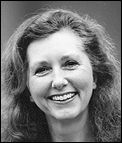 |
Mary Gordon Roots of Empathy Mary, a Newfoundland native, is being honored for her project, Roots of Empathy, an emotional literacy program aimed at reducing childhood aggression, and ultimately breaking the generational cycle of abuse. Using infants and their parents in the classroom setting, Roots of Empathy has thus far been successfully launched in 133 Canadian public schools, reaching more than 4,000 children in five Canadian provinces. |
 |
Al Etmanski Planned Lifetime Advocacy Network, Vancouver, British Columbia Al is recognized for his groundbreaking work building the Planned Lifetime Advocacy Network (PLAN). PLAN's work enhances the quality of life and security of disabled persons by building a safety net of diverse programs — secured networks of family and friends, increased financial independence, and avenues for true contribution and citizenship — that can withstand the death of their parents as well as unpredictable changes in government-funded support services. Elected in 2002. Learn more at www.plan.ca |
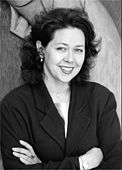 |
Donna Morton The Center for Integral Economics, Victoria, British Columbia Leveraging tax incentives and economic tools to protect the environment and meet social needs The Centre for Integral Economics (CIE) is proving that economic tools can help resolve environmental and social challenges while creating financial incentives and increased economic activity. Using traditional policy tools such as tax incentives and user fees, Donna Morton is helping create "smart taxes" at the municipal level to drive sustainable investment. CIE works with a team of economists, urban planners and other experts. Together, they analyze financial structures such as fees, taxes, licenses, levies and development costs to determine how to improve a city's finances and support low-income housing, economic development, a healthy environment and other community goals. |
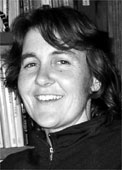 |
Nicole Rycroft Markets Initiative, Tofino, British Columbia Safeguarding the bio-diversity and long-term survival of ancient forests globally The Canadian edition of "Harry Potter and the Order of the Phoenix" and recent works of literary giants such as Margaret Atwood are some of the best-known believers in Nicole Rycroft's strategy for stemming the rapid loss of ancient forest. Rycroft's nonprofit, Markets Initiative, has revolutionized the Canadian book-publishing industry by actively working with publishing companies such as Penguin Canada, Random House Canada and Doubleday Canada, to phase out their use of products derived from the ancient rainforest of British Columbia and endangered forests globally. Rycroft facilitates change in consumption patterns throughout the entire publishing industry supply chain, including: Negotiating new paper product specifications with producers, overseeing test runs with printers, and assisting publishers in managing demand issues. Today, 71 of Canada's leading publishing houses and 41 U.S. publishing companies have committed to eliminate the use of ancient forest papers from their books, and the current Canadian edition of "Harry Potter" was printed using alternative fibers as a result of Rycroft's interventions. |
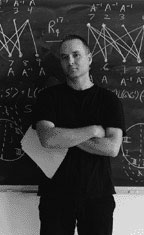 |
John Mighton Junior Undiscovered Mathematical Prodigies (JUMP) John Mighton invented a methodology to improve mathematics teaching that results in universal, and measurable, higher performance, and an overall positive change in students' attitude towards learning and their perception of their potential. His organization, Junior Undiscovered Mathematical Prodigies (JUMP) is spreading his method among public schools that serve low income students in Canada and the USA, and by doing so, is changing the mental models of teachers and educational authorities about what kids are capable of accomplishing. |
 |
Aaron Pereira Community Bank Initiative Aaron is an ambitious person with a huge vision for the social sector. Aaron is creating the first financial institution in Canada tailored to the needs of citizen sector organizations. He envisions a bank that is part of the sector focused on serving the sector nationally, investing all surpluses generated into the sector itself. His Community Bank Initiative offers a unique opportunity to harness the strengths and assets of the sector, while simultaneously addressing the financial challenges and filling the gap in financial products that citizen sector organizations face. |
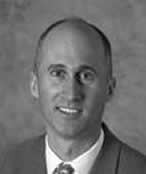 |
Geoff Cape Evergreen, Toronto, Ontario Senior Fellow Geoff Cape�s Evergreen project redefines the relationship between people and nature in cities. A longtime environmentalist, Geoff believes that beautiful, manicured parks are not natural, and urban schoolchildren shouldn't spend their outdoor time on concrete and blacktop. Rather, his Evergreen project restores the ecosystems of unused urban spaces and transforms them into environmental education centers. His innovative model demonstrates that all sectors of society can work together to bring nature back into urban living. |
 |
Marc Kielburger Volunteer Now, Toronto, Ontario Marc Kielburger started Volunteer Now! to make social advocacy "cool" in Toronto high schools. His international organization, founded on the principal that young people have the power to change the world, seeks to motivate young people to become active in their communities and around the globe. The largely student-run program trains teachers, organizes leadership programs and recruits student "volunteer ambassadors" to inspire students to connect with their communities as effective agents of change. |
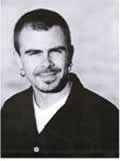 |
John Richardson Pivot Legal Society, Vancouver, British Columbia In one of the poorest neighborhoods in the United States or Canada, John Richardson uses the law to strategically advance the rights of the most marginalized members of society such as the homeless, drug addicts, and sex workers. His Pivot Legal Society, based in Vancouver, follows the model of Mahatma Gandhi's campaigns, systematically challenging the attitudes and institutions of power that enable marginalization. Pivot uses a grassroots approach to public policy by combining the empowerment of community groups, dedicated pro bono lawyers, and communication strategists. By aggressively advancing the interests and rights of the most disenfranchised, John hopes for a "trickle-up" effect of respect and acceptance that will move us toward a more tolerant, inclusive and compassionate society. |
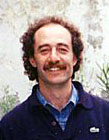 |
Larry Silberman (Elected in Mexico, living in Montreal) At the time of election Larry Silberman was methodically building a sustainable national children's theater program for Mexico. In so doing, he was fundamentally transforming a field characterized by a weak financial base, declining government support, inadequate management and inappropriate productions into a positive force for social progress. |
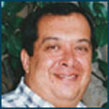 |
Octavio Duque (Elected in Colombia, living in Gatineau) Octavio Duque developed new strategies for mobilizing rural communities to address the twin concerns of sustainable production and environmental conservation. |
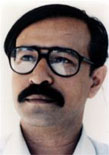 |
Saleem Samad (Elected in Bangladesh, living in Toronto) Long a well-known investigative journalist in Dhaka, Saleem Samad recently shifted his own work to focus on development and the environment. He founded a development and environment syndicate, Development Features, chiefly written by rural journalists for papers outside Dhaka. At the same time, he's organizing motivated rural journalists to use their writing to focus their readers' attentions on key development issues, to go beyond silent event reporting to becoming agenda-setters. If you are interested in contacting these Fellows please send an email to adussan@ashoka.org. |